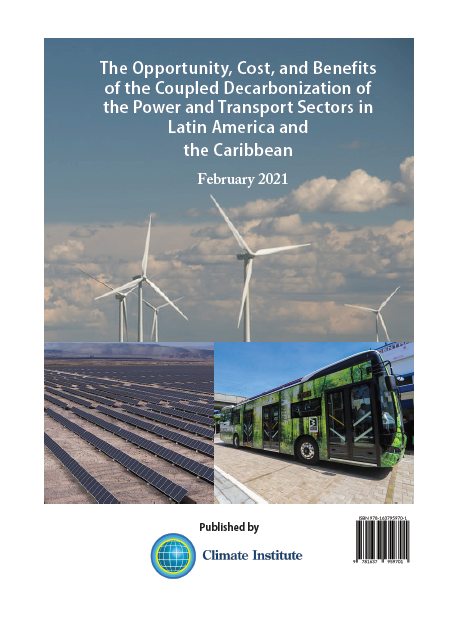This analysis has been conducted in the context of calls for immediate and drastic action to arrest the continuing increase of CO2 concentration in the atmosphere, which by 2019 reached 409 parts per million (ppm). Global temperatures have now reached 1°C above pre-industrial levels, and at current trends, will result in a 2.5-3.2°C increase or more by the end of the century. The situation has prompted warnings from the scientific and global governance community that the biosphere may be reaching a point of no return and requests for decarbonisation of economic activities.
Coupling the decarbonisation process of power and transport can contribute to cost efficiency, enable synergies and interlinkages, and deliver higher economic benefits and greater mitigation impacts than through a sector by sector approach. Embarking on the road to carbon emissions-free power and transport simultaneously could also provide greater flexibility to the region’s efforts to decarbonise. The report identifies policies and practical approaches and provides data to support the process.
The measures proposed in this report fit into the mold of bold climate action, as called for by the UN Secretary General and the Global Commission on the Environment and Climate (New Climate Economy), that can result in new jobs, economic savings, market opportunities, and improved well-being. Actions to decarbonise can likewise be framed in the context of a green economy, defined by the UN Environment Program (UNEP) as “one that results in improved human well-being and social equity, while significantly reducing environmental risks and ecological scarcities”.
